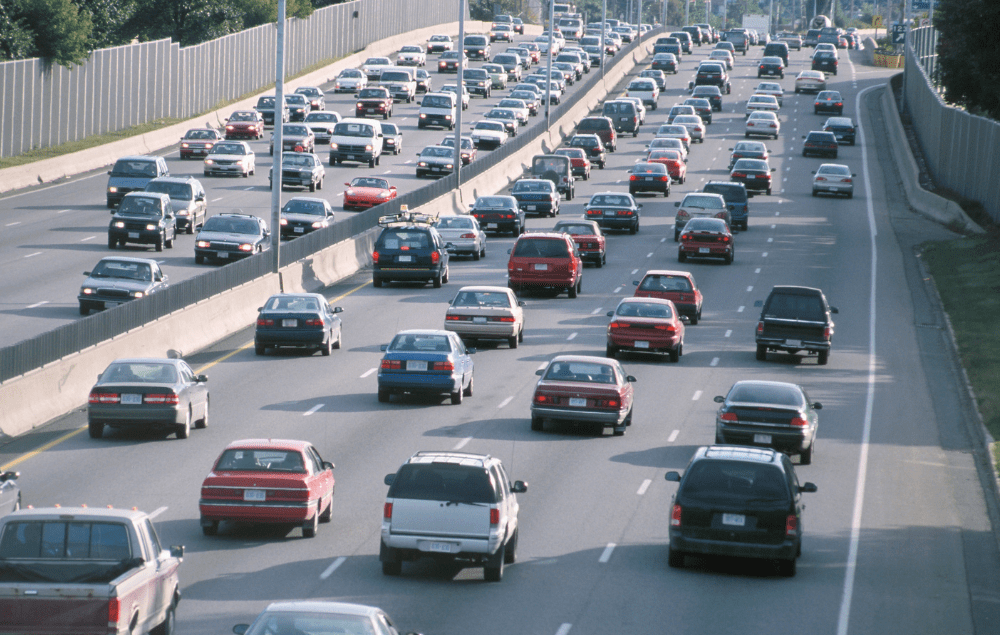Home > Practice Areas > Automobile Collisions
Automobile Collisions
An automobile collision occurs approximately every 10 seconds somewhere in the United States, so it is no surprise that automobile accidents give rise to many of the personal injury law claims in Washington State and in the greater Pacific Northwest region. GLP Attorneys offers high-quality legal and trial services for victims of serious automobile collisions.
If you have been involved in a car crash, please call or email our attorneys for a free consultation.
Understanding Negligence in a Car Collision
Washington state courts look to a number of factors when determining whether the driver of a car was negligent in causing an automobile collision between cars, trucks or motorcycles. Some examples of these factors include, but are not limited to, the following:
- Driving a car at a speed too fast for road or traffic conditions
- Driving an automobile or truck under the influence of drugs or alcohol
- Distracted driving, including texting while driving
- Disobeying traffic signs or signals
- Failing to signal while turning
- Following a car too closely
- Generally failing to follow the Rules of the Road while driving a car
In all collision cases, it is essential that measures be taken immediately to preserve evidence, investigate any facts in question, and enable physicians or other experts to thoroughly evaluate any injuries promptly. It is therefore important to talk to a qualified personal injury attorney for a free lawyer consultation as soon as possible to ensure your rights are being protected and that your potential claims are addressed properly.
Getting a Qualified Automobile Collision Injury Lawyer
Personal injury cases from an automobile accident injury can be complex, and it is important that you understand the variety of different liability and insurance coverage issues that may apply to your case. If you think that someone was at fault in causing a collision that you, a family member or friend were involved in, you should have the facts of your claim reviewed by a lawyer as soon as possible.
To have an experienced injury lawyer evaluate your claim for free, contact us today! One of our 35 skilled attorneys will be able to tell you whether someone was negligent or reckless in causing harm to you, and whether you might be able to collect damages under Washington law.
If you have been involved in an automobile collision, please call 206.448.1992, or email our attorneys at attorneys@glpattorneys.com for a free consultation.
The two most immediate concerns most people have after being involved in a car collision are (1) getting treatment for any injuries they suffered as a result of the incident and (2) determining how they might ensure that the resulting medical bills get paid. If you are injured in a car collision, there are four main kinds of coverage that may apply to your situation: PIP insurance, health insurance, worker's compensation, and liability insurance.
Click the "+" icons below to learn more about each kind of coverage.
The best insurance for payment of medical expenses in full is personal injury protection (PIP) insurance coverage.
What is PIP? PIP is optional insurance coverage that is added to an auto policy. In the event of a collision, PIP will help pay for medical expenses, wage loss, and loss of essential services -- regardless of who is at fault. The minimum amount of PIP medical expense coverage in Washington is $10,000, but policies can be purchased that provide coverage of $25,000, $35,000, or more.
Is PIP insurance mandatory? PIP insurance coverage is not mandatory for individual car owners in Washington state. However, their insurance companies must offer the coverage. RCW 48.22.085 provides that no new liability insurance policy or renewal of an existing policy may be issued unless PIP coverage is offered as an optional coverage. The law states that a named insured may reject, in writing, PIP coverage. The insurance carrier is not required to include PIP coverage in any supplemental, renewal, or replacement policy unless a named insured subsequently requests such coverage in writing.
What else can PIP do? PIP coverage also helps in that you avoid deductibles, co-pays, and limited referral networks, and in most cases should cover medical bills in full as they are incurred.
How do healthcare providers bill PIP? When PIP coverage is available, health care providers should promptly submit records and bills to the PIP insurance carrier, be available to answer questions from the PIP adjuster, and make sure all submitted records are legible, organized, and properly coded.
Where can I get more information on PIP? If you want to learn more about PIP coverage in Washington, you can also visit the Washington State Insurance Commissioner’s website.
What if PIP coverage isn't enough? Oftentimes, the minimum PIP coverage of $10,000 exhausts before you reach maximum medical improvement and get released from care by your primary doctor. This is especially true where you are taken by ambulance from the collision scene to a hospital for emergency care. Other times, you may have no PIP coverage available. In either situation, the primary insurance for immediate payment of medical expenses is any available health insurance.
What does health insurance in Washington typically cover? Most Washington health plans will cover chiropractic care, massage therapy, physical therapy, and acupuncture pursuant to WAC 284-43. Billing health insurance is subject to the terms of any contract that the health care provider has with the particular health plan. This means that there may be limitations on the number of treatment visits and covered conditions. You may need to obtain referrals for care, and deductibles and co-payments will apply.
When does worker's compensation coverage apply? If you have been injured on the job in a car or truck collision, the primary insurance coverage for payment of medical expenses is usually worker’s compensation coverage through the Washington Department of Labor & Industries, or a Self-Insured Entity.
How is worker's compensation coverage different from other kinds of coverage? Healthcare providers who treat injured workers are entitled to receive payment in full for their services. However, because payments on L&I claims are controlled by Washington statutes (RCWs) and administrative codes (WACs), the payment process on these kinds of claims can differ from that of other claims in a number of ways, including:
- Pursuant to RCW 51.28.020(1)(b), a health care provider is obligated to inform injured workers of their right to L&I benefits and to provide “all necessary assistance” in completing an application for benefits. This obligation must be fulfilled without charge to the patient.
- Healthcare providers are then required to bill all services for an accepted condition, at a usual and customary fee, to the L&I claim.
- In the event that a provider’s bills to the public are lower than the Department’s fee schedule, then WAC 296-20-010(2) states that the Department will pay the lesser of the two.
What do I do if I am injured but don't have any insurance coverage? If you do not have PIP coverage, health insurance or worker’s compensation insurance that will cover your medical bills, you can seek medical care and ask that the health care provider “hold” their bills through use of a medical lien against any future settlement with the person that caused your injury.
In what situations can a medical lien be filed? A medical lien can be filed when there is a third party responsible for your injuries AND you have outstanding medical bills associated with those injuries because:
- You have already exhausted your PIP coverage; or
- There is no PIP coverage, worker’s compensation, or health insurance available.
How does a medical lien work? If you still have outstanding medical bills and you have run out of insurance options, a health care provider can hold your medical bills for payment from any settlement with the at-fault party’s liability insurance carrier. This is known as a medical lien. Medical liens are governed by RCW 60.44.
How should I proceed once a medical lien has been filed? By asking any health care provider to file a medical lien, the provider has the right to enforce the lien against any final settlement of your claims with the insurance company for the at-fault party. You should monitor how much you owe for the treatment you are receiving so that you are not surprised by a big outstanding bill that might make settlement of your claim difficult.
Successful Cases
$811,000
$950,000
$1,000,000
$1,060,000
$1,336,000
$1,560,000
$1,800,000
$1,700,000
$2,000,000
$385,000
$550,000
$605,000
$1.7 Million
$350,000
$350,000
If you have been involved in a car crash, please call or email our attorneys for a free consultation



